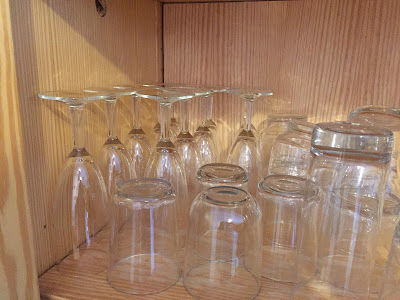Ah, my native city. English though I am, I always feel a certain sense of homecoming when I return to Rome. But I can see what the Northerners mean. The streets are potholed, the pavements are filthy, the traffic noisy and congested. There are certainly aspects of Rome that feel more appropriate to, say Lagos.
Of course, Romans say that Africa starts at Naples. I don't know what Neapolitans say. I can't really say I know that noble city. Perhaps, with no obvious metropolis south of them, they say that Africa starts at the African coastline, which would be less amusing though it would have the merit of displaying more geographical sense.
For my part, I'm always inclined to say that Austria starts at Milan.
Just to clarify, I realise that Austria is a fine country, with glorious Alpine scenery and gem-like cities set in it at one end, the majestic if slightly ponderous city of Vienna at the other, with the Danube - not, to be honest, really all that blue - flowing through it. But my comment about Milan is more about certain other characteristics: a degree of self-satisfaction, a shortness of self-deprecatory humour or, to put it another way, an inclination to take oneself too seriously, to say nothing about a somewhat impersonal efficiency a little short of warmth.
Of course, Milan's a lot further south. So in a sense, it's rather like Austria with better weather, the same remark I frequently make about Australia and England. Not that the Australians thank me for it, and I don't expect the Milanese would either.
 |
| Passport queue at Milan's Linate airport As seen by Gianfranco Repetto (@gfr70) who suffered even longer than I did |
At Linate, I found myself in a twenty-five minute queue to get through passport control. Now, that's partly my own country's fault: if Britain in its xenophobia hadn't refused to join the Schengen area, we would have been able to enter Italy without even showing a passport, so I'd have sailed through to the baggage area.
But even without the Schengen benefit, there are other European nations which have passport-reading machines in place. In a rather wonderfully African way - I've had some epic adventures trying to cross African frontiers - we just stood in a queue that was glacier-like in its movement, while the two policemen on duty methodically, systematically and ponderously checked two or three hundred passengers' passports one by one.
The baggage hall was a mess, too, with much of its ceiling down and a great deal of scaffolding up, all part of a major refit, apparently. I wonder if they're going to instal passport readers?
Several carousels were out of service. It came as no surprise when I couldn't find my case on any of the few still running. I went to one baggage information counter, only to be told to go to another. Where I stood and waited for a further unconscionable time, even though there was only one person ahead of me in the queue. The woman behind the counter was full of goodwill, but her computer system wasn't that functional, and she seemed to have to record much of the information on paper.
What made it worse was that the man in front of me was Norwegian. Neither he nor she spoke particularly good English, which made it particularly entertaining to listen to a long conversation about just how to record one of the letters in his name, the distinctly Scandinavian ø.
Fortunately, however, she turned out to be friendly and helpful, as I discovered when it was finally my turn to be helped. In fact, after a few questions to establish the basic facts, she asked me, "are you sure your bag's not there? The system shows that it was on the plane."
I went back to the carousels and - picture my joy - there was my bag at last! It was a matter of moments to go back and thank the lady for her help, before getting a taxi to whisk me through the sodden streets to my hotel and a meeting for which I was, in the end, only a few minutes late.
 |
| The scene outside the hotel - as wet as England |
 |
| An elegant lady heading out into the rain of Milan Fashion Week |
Although, to be quite honest, I do have to qualify what I said about my missing case. It does occur to me, in retrospect, that it may have been on the carousel the whole time. That I just didn't see it in my flustered state after the frustration of the passport queue.
But, hey, I'm not going to admit that. It'd spoil the story.


















